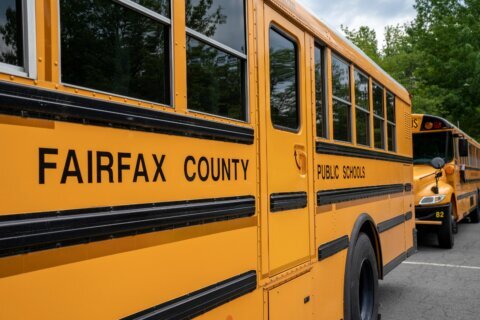Fairfax County Public Schools is expected to resume discussing possible changes to its sex education curriculum in the fall, after the Family Life Education Curriculum Advisory Committee revised its recommendations for coed instruction in the Virginia school system.
In its latest report, the committee, made up of school board appointees, teachers, students and members from the health department, recommends gender combined instruction in fifth grade. In its recommendations from the 2021-22 school year, the committee recommended combined instruction in the Human Growth and Development unit in fourth through eighth grades.
This year, the group is recommending classes separated by gender for the fourth grade lesson on puberty, which it says is the only lesson in fourth grade. In fifth grade, the committee recommends separate classes for lessons on puberty, the reproductive system and human reproduction, and gender-combined instruction for lessons on abstinence and sexually transmitted infections.
All lessons in sixth through eighth grades would be coed under the latest recommendations.
The board isn’t ready to vote on the recommendations yet, Superintendent Michelle Reid said at a work session last week, and is planning to provide an update on curriculum plans in the fall. The school system also has to seek feedback on recommendations related to consent.
Some board members criticized the lack of research available on gender combined and gender separate sex education lessons. In its report, the committee said there’s limited research available on best practices for such lessons in a gender separate or combined setting.
“This is clearly a difficult topic, right?” Reid said. “We’re all wrestling with this, research is not abundant nor is it clear. What is clear is that I believe we have a shared interest in each and every student having a safe space to learn what’s critical health information.”
In response to a survey last fall, nearly 85% of the 2,656 respondents indicated they didn’t support gender combined family life education lessons in fourth through eighth grades. Critics of the approach said students will be uncomfortable and embarrassed and won’t ask questions, and that students are too young to handle the content in a coed setting.
Supporters argue coed lessons normalize conversations about puberty and reproduction, and help create an inclusive environment for students.
Board member Karl Frisch criticized the survey, suggesting there’s no way to know whether the people who responded to the survey live in Fairfax County.
“If I’m a ‘Reddit warrior’ in Wyoming, and I have two cellphones, a laptop, an iPad and maybe web access over my television, I could submit answers to this survey as many times as I have access to a device,” Frisch said.
In focus groups with 48 students in various grades, some said student maturity is a concern, while others suggested coed lessons would promote students’ understanding of each other.
Parents are able to opt their students out of any family life education lesson, according to the school system’s website.
“We want our kids to be learning this material in school, and we want to make sure we’re catering it in a way that is inclusive to all children,” board member Abrar Omeish said.
The school system discussed the committee’s previous recommendations last spring, but chose in May 2022 to delay a vote, citing the need for more community feedback.
Fairfax County’s Family Life Education Curriculum is based on state standards but is created locally.








